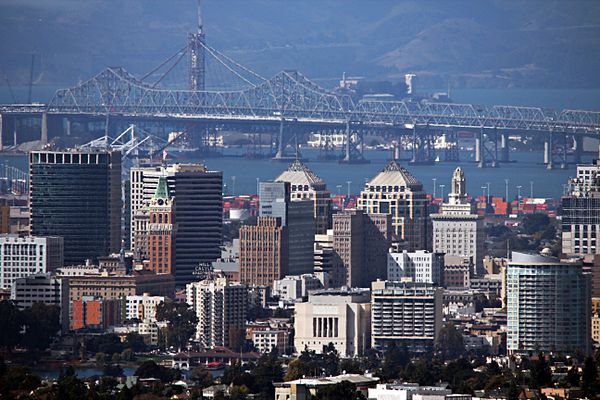Will revived redevelopment program create additional affordable housing?

A bill that would revive redevelopment as a tool for local governments passed the state Legislature in the final days of the summer session on party-line votes.
Now the question is whether a so-far noncommittal Gov. Gavin Newsom will accept the claims that Senate Bill 5 by Sen. Jim Beall, D-San Jose, has enough safeguards to prevent redevelopment from going as astray as the version that Gov. Jerry Brown and the Legislature killed in 2011.
That version allowed local redevelopment agencies to divert a slice of property taxes to use on projects meant to spur the economies of “blighted” neighborhoods. If the projects boosted property tax revenue, the additional increment would go to the agencies for new projects. In 2010, some 400 redevelopment agencies diverted 12 percent of all California property taxes for their use.
‘Scams providing windfalls to cronies’
But by 2011, many investigations had found that redevelopment funds were routinely diverted to pay for City Hall salaries and that many of the projects that did get funding were those pitched by politically connected developers. Then-state Controller John Chiang said many redevelopment projects were “scams providing windfalls to political cronies.”
Many healthy businesses with prime locations had been declared “blighted” so cities could use eminent domain to seize them and hand them over to car dealerships or big-box stores which would generate the sales taxes that are a key source of revenue for city coffers.
And on top of these issues, the Legislative Analyst’s Office said there was “no reliable evidence” that redevelopment helped the economy. Instead, it attracted businesses that would have opened elsewhere without subsidies offered by local government – shuffling economic activity around, not spurring it.
New version would emphasize housing
In interviews and committee meetings, Beall has argued that a much-more focused version of redevelopment that gives at least half of diverted funds to subsidized low-income housing – up from the previous 20 percent – can help California with its housing shortage. The new program would also fund transit-oriented projects and play its old role of helping poor neighborhoods boost their economies.
To prevent past problems with cronyism, a state oversight group would have to certify projects met basic standards before funding could be diverted.
The bill would initially allow $200 million in property taxes to be diverted annually with a phased-in upper limit of $2 billion a year. About $5 billion a year was being diverted when redevelopment was shelved by the state in 2011.
While running for governor in 2018, Newsom was supportive of reviving some form of redevelopment. But he included no funds for a new program in his initial state budget and has told reporters that his budget already includes record funding for affordable housing.
Meanwhile, while it didn’t get as many headlines as some other problems did, redevelopment’s record with creating affordable housing in California was also poor to mixed.
Old version often generated no new units
In 2010, the Los Angeles Times reported that, “At least 120 municipalities – nearly one in three with active redevelopment agencies – spent a combined $700 million in housing funds from 2000 to 2008 without constructing a single new unit … . Nor did most of them add to the housing stock by rehabilitating existing units.”
Where did the money go? The Times cited many examples of redevelopment agencies buying property that was never subsequently developed.
It also found that “nearly three dozen cities, including Monterey Park and Pismo Beach, reported spending most of their affordable housing money over the decade on ‘planning and administration’ – but never built a single unit.”
Beall’s bill passed the Senate 29-9 and the Assembly 55-19.
Chris Reed
Chris Reed is a regular contributor to Cal Watchdog. Reed is an editorial writer for U-T San Diego. Before joining the U-T in July 2005, he was the opinion-page columns editor and wrote the featured weekly Unspin column for The Orange County Register. Reed was on the national board of the Association of Opinion Page Editors from 2003-2005. From 2000 to 2005, Reed made more than 100 appearances as a featured news analyst on Los Angeles-area National Public Radio affiliate KPCC-FM. From 1990 to 1998, Reed was an editor, metro columnist and film critic at the Inland Valley Daily Bulletin in Ontario. Reed has a political science degree from the University of Hawaii (Hilo campus), where he edited the student newspaper, the Vulcan News, his senior year. He is on Twitter: @chrisreed99.
Related Articles
California state agencies easy targets for hackers
This is how the state government handles a department that has continually received sub-par evaluations: add employees, boost wages 17
Utility Surcharge Funds Green Research
FEB. 11, 2011 By WAYNE LUSVARDI If you look at the bottom of your electricity bill you will see a
Open gun carry under fire
MAY 5, 2010 By JOHN SEILER Gun rights activists have stirred up controversy in recent months by carrying, and displaying,



